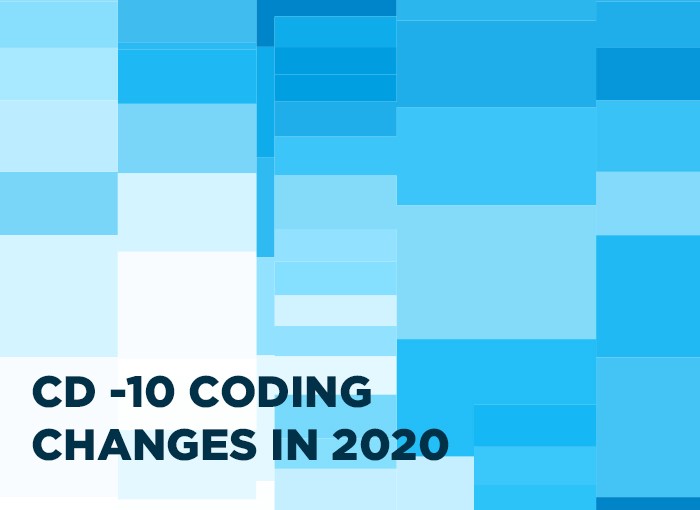CD -10 Coding Changes in 2020; What are the new updates
The medical billing and coding guidelines for ICD-10 are available for 2020 diagnosis changes to give you a good idea that comes into effect each year starting October 1. The updated ICD code set includes 490 code changes, 58 validated, and 47 revised code sets that are effective since October 1, 2020.
Below is an overview of the updated codes to pay particular attention to in case you report most often that will help proper reimbursement for your claims. ICD-10 2020 makes some salient changes to coding for Special Purposes (U00-U85) as one of the highlights for the financial year 2021.
- The new instruction for 2020 reporting Coronavirus infections is incorporated in FY ICD-10 effective from April 1, 2020.
- You can report three news codes for stage 3 Chronic kidney disease (CKD). The new subcodes tell you the appropriate & reportable diagnosis: N18.31 (CKD, stage 3a), N18. 32 (CKD, stage 3b), and N18.30 (CKD, stage 3 unspecified).
- Chapter 4 of 2020 ICD-10 guidelines for diabetic patients medicated with oral hypoglycemics, injectable insulin & non-insulin drugs. The ICD-10 includes several changes for Endocrine, Nutritional, and Metabolic Diseases. To elaborate if the patient is ingesting non-injectable insulin as well as an injectable non-insulin anti-diabetic drug. In that case, Z79.4 and Z79.899 report for diabetic patients. If a patient is consuming hypoglycemic drugs and an injectable non-insulin anti-diabetic medication, then code Z79.84 along with Z79.899 is hypothecated.
- There are 18 detailed codes added for Sickle cell anemia. The new codes assigned for specific complications like Hb-C disease related to cerebral vascular intraoperative is D57.213 & sickle-cell thalassemia beta zero with acute chest syndrome is D57.431.
- The ICD-10 2020 official guidelines state 12 new codes for Pathological fractures such as M80.8AX- & M80.0AX- based on severity. Fracture codes from Chapter 13, Musculoskeletal System, should be assigned for injuries like primary and secondary arthritis, arthritis caused as a result of trauma, and rheumatoid arthritis. M24 category covers new codes for disorders of a ligament, pathological dislocation, articular cartilage disorder, contracture, recurrent dislocation, and ankylosis.
- If you have been keeping tabs on Chapter 19, Injury poisoning codes, the new set includes 128 additions for adverse effects & poisoning by tramadol, fentanyl, and other synthetic narcotics.
- Expect ICD-10 to include 125 additions in Chapter 20, which is External causes of morbidity (V00-Y99). You will code based on the collisions involving electric and other non-motorized vehicle accidents.
- Observation code that is Z03.818 makes a significant change for the fiscal year 2021. Chapter 21 of ICD-10 new code for health status and contact with health services. The new code reflects the changes that the observation codes are essential and used as first-listed/principal diagnosis. For the ruled out, where the patient is under observation for a condition, the observation code may be assigned as a secondary diagnosis code and is not related to first-listed/ principal diagnosis. To elaborate, if the patient has a specific injury associated with a motor vehicle accident in addition to an encounter for observation for suspected COVID-19 infection, then it is eventually ruled out.
- Chapter 22, Codes for Special Purposes (U00-U85), as one of the highlights for the year, includes a new subsection. Effective from April 2020, by adding U07.0 & U07.1 for Vaping related disorders and COVID-19, respectively.
- In the Z55-Z65 category, Social determinants of health, ICD-10 2020 general guidelines state that patient’s potential health hazards due to psychosocial and socioeconomic situations. Codes should only be assigned when there is associated medical record documentation diagnosed by the patient’s provider who is taking care of the patient. This document is considered a medical diagnosis. Other than that encountered as social information. The issue of how to code is a tricky one, and hence ICD-10 offers little more help for patient self-reported documentation. It is allowed to assign codes for social determinants of health category as long as it is signed-off by and reported into the health record by the provider. This change is crucial for the proper sequence and diagnosis of the code for your claim.
P.S.
Z79.4 code used for long term use of insulin
Z79.899 code used for other long terms drug therapy
Z79.84 code used for long term use of oral hypoglycemics drugs
Withdrawal & deleted codes from ICD-10 2020
There are 21 withdrawal codes from Substances like cocaine, opioids, alcohol, and multiple unspecified substances.
Few codes are deleted from ICD-10 2020 and reflect this change in 2021.
- Q51.20, doubling of the uterus, unspecified stage, and unstageable.
- The code set underlying the subcategory of T40.4X- adverse effects caused due to poisoning and underdosing of the synthetic narcotics are no more in the updated guidelines.
As a final note, outsourcing of medical billing and coding services is widespread to reduce coding complexities by adopting the changes in the ICD-10 code set. As medical billing and coding trends are volatile, hence certified coders in reliable medical billing companies stay up to date with the current changes and help the healthcare companies in faster claim processing.




